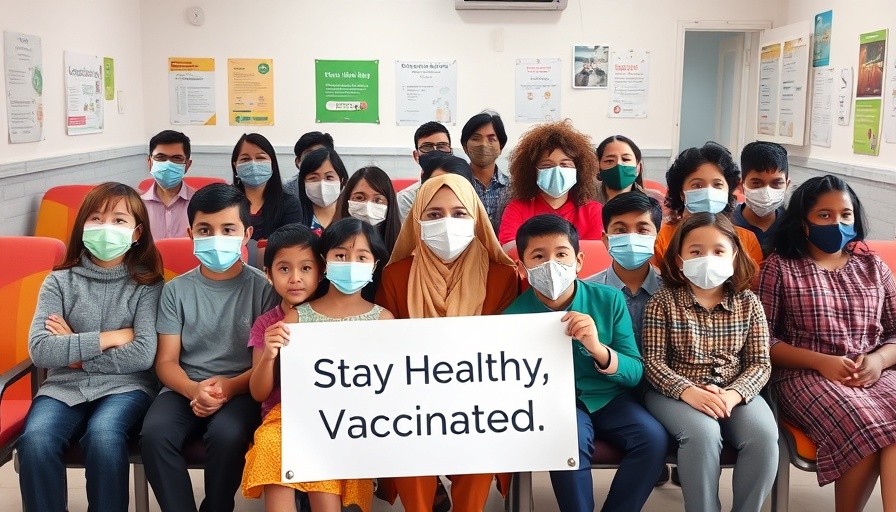
Understanding the Rising Measles Outbreak in Texas
In the face of growing public health concerns, Texas is currently confronting a serious measles outbreak that has now infected 124 individuals across nine counties. This alarming surge highlights a significant issue: many of those affected are unvaccinated or under-vaccinated. With vaccination rates traditionally known for their effectiveness decreasing in various communities, the risk of widespread outbreaks becomes a pressing reality. Public health officials emphasize that urgent action is necessary to combat this public health issue and safeguard community health.
Why Vaccination Matters
Vaccination remains the most effective strategy against infectious diseases like measles. It serves not only to protect the vaccinated individual but also contributes to the broader concept of herd immunity—whereby a sufficiently high percentage of the population is immunized to disrupt the transmission of the disease. This is especially critical for those who cannot be vaccinated due to medical conditions, such as infants or individuals with compromised immune systems. By staying up to date on immunizations, you are not just protecting yourself; you’re also playing a vital role in defending the health of your community.
Measles Symptoms and Transmission: Know the Signs
Measles is a highly contagious virus that spreads through respiratory droplets, making awareness of its symptoms crucial. Initial symptoms typically include a high fever, cough, runny nose, and red eyes, followed by a characteristic rash that starts on the face before progressing to the rest of the body. By educating the public about recognizing these symptoms and encouraging timely medical consultation, we can help limit the spread of the virus. If you suspect exposure to the virus or exhibit symptoms, immediate medical attention is essential.
Community Response: Steps Being Taken
In response to the crisis, public health authorities in Texas have launched comprehensive strategies aimed at curtailing the measles outbreak. These efforts include thorough contact tracing to identify and isolate individuals who may have been exposed to the virus. Vaccination clinics are now operational in high-risk areas, encouraging those who remain unvaccinated to receive their immunizations. Educational campaigns aim to raise awareness about both the need for vaccines and the symptoms associated with measles. Staying engaged and informed about these public health initiatives provides an opportunity to protect yourself and your community.
Building Awareness in Local Communities
The current situation has prompted significant community responses, with local health organizations increasing their outreach to educate the public. By organizing informational sessions and distributing materials, they are working diligently to raise awareness about the importance of vaccination and the measures being taken to tackle the outbreak. This collective mobilization plays a pivotal role in fostering a community environment that prioritizes health, safety, and well-being. The more informed and involved individuals are, the more resilient the community becomes against outbreaks.
 Add Row
Add Row  Add
Add 




Write A Comment